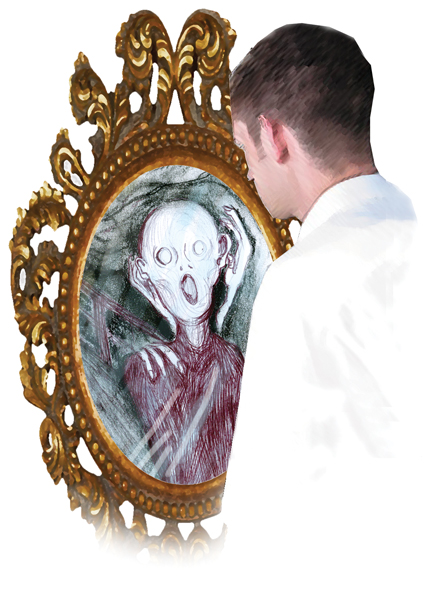Forgiveness is not the same thing as condoning an unkind act or reconciling with someone who hurt you, according to Frederic Luskin, who holds a doctorate in counseling and health psychology.
“It doesn’t mean … that you have to jump back into bed with somebody who cheated on you,” he said.
Luskin, who started his research on forgiveness after only a handful of previous studies, is scheduled to speak at a seminar held at De Neve Auditorium on Oct. 2. He will be presenting alongside Daniel Siegel, an associate clinical professor of psychiatry at the David Geffen School of Medicine, who focuses his research on using introspection to develop compassion.
The UC Berkeley-based Greater Good Science Center organized the seminar, Forgiveness and Mindsight, as part of its Science of a Meaningful Life series.
The center studies the science of compassion, altruism and happiness but also takes that science and distributes it to stimulate conversation among people such as health care providers, said Dacher Keltner, founder of the center.
“With these speaker series … you bring in 100 or 200 health care providers and you give them the science, and that means you’re reaching out to thousands,” he said.
Luskin began his studies of forgiveness for two reasons: He had recently fallen out with a good friend, and he wanted to write his dissertation on something that interested him.
A primary fact Luskin uses to convince people to be more forgiving is that it will reduce stress.
People can feel hostility toward those who hurt them or instead compassion for their own pain, Luskin said.
“If you constantly practice hostility, that becomes a habit,” he added.
As an example, he brought up the case of a boyfriend who goes out and does something that his girlfriend does not approve of.
If the girlfriend responds like a jerk, she may make it impossible for him to admit that he was one, Luskin said.
Bonnita Wirth, a psychologist who works for the city of Los Angeles, plans to attend the seminar.
“This is a very unique pairing, so I was excited about it,” she said of the two speakers.
The Greater Good Science Center and this seminar focus on how to be healthier, happier individuals, instead of emphasizing abnormalities, she said.
“This is a whole new wave of psychology that most of us who are older were never taught in school,” she said.
Wirth said she believes many young people are plagued by depression, anxiety or low self-esteem.
The seminar’s subject matter is interesting for people in all fields, because it is practical information about human relationships, Wirth said.
“And very few people are not interested in that,” she added.
One element Luskin touches on in his findings is the need to get rid of unenforceable rules.
He defines this concept as something that someone expects as a rule but has no control over ““ such as the actions of a significant other.
When the unenforceable rule is broken, the person who made that rule feels helpless, he said.
“You have to substitute the truth, which is: This is something I wanted, and it didn’t happen,” he said.
One of the reasons this seminar interests people is that it addresses old questions: how to be happy and how to be good, Keltner said.
“People are hungry to study and to think about it, and they’re hungry for the science so we’re happy to be a clearing house for it,” he added.
Segments of the seminar are scheduled to be available online in February, said Jason Marsh, editor in chief of Greater Good magazine.
One professor at Point Loma University intends to bring a group of his undergraduate students to the seminar.
“I think they will offer the audience some pretty practical take-home tips and guidelines on how you can actually practice this in your own life,” said Michael Leffel, who holds a doctorate in personality and social ecology.
Leffel said the seminar will address the same types of questions Keltner referred to: What does it mean to attain emotional and social well-being?
One thing Luskin plans to teach at the seminar is that practicing forgiveness will allow major negative events to affect a person for a shorter period of time and prevent trivial problems from causing major pain.
Moreover, Luskin spoke about created realities. He used an anecdote from People magazine: An actress weighed 128 pounds, fit a size 6 and believed she was fat, so she dropped down to a size 2 at 113 pounds.
“The point being, she convinced herself that being 128 pounds was ugly, so she had a mind-body experience of ugliness that was only generated by her own mind,” he said.
She created her reality.
“It doesn’t matter what the objective reality is,” Luskin added. By holding on to past events, injustices or a negative worldview, people create their realities, he said.
So one of the things he does in his forgiveness seminars is teach people to cope better, he said.
Luskin attempts to help people get rid of invented realities and unenforceable rules through his seminar.
“I can be happy with life as it is,” is what he hopes to hear from those with whom he works.
